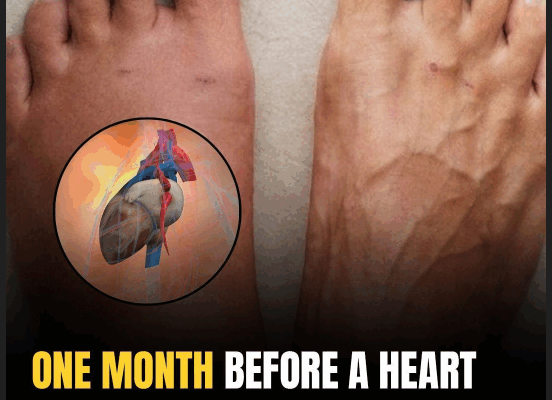Did you know that heart attacks are the leading cause of death in the United States? A major reason behind this alarming trend is the fast-paced, high-stress lifestyle many people live today, combined with unhealthy diets and frequent consumption of junk food.
While adopting healthier habits and managing stress are great ways to protect your heart, what could truly make a life-saving difference is learning to recognize the signs of a heart attack before it actually occurs.
In fact, your body may start giving you warning signs as early as a month in advance. These early symptoms should always be taken seriously. One of the first red flags is swelling in your feet or ankles. This could mean your heart isn’t pumping blood properly, leading to fluid buildup known as edema. Another warning sign is persistent fatigue.
When arteries are narrowed, your heart gets less oxygen-rich blood and must work harder, which can leave you feeling exhausted throughout the day.
Shortness of breath is also a key symptom. Since your heart and lungs work closely together, a reduction in blood flow to the heart can cause your lungs to struggle with oxygen delivery, making it harder to breathe. Sudden weakness in your muscles may also occur because poor circulation is stopping nutrients and oxygen from reaching your tissues properly.
Dizziness and cold sweats are other serious signs, caused by restricted blood flow to the brain. This is dangerous and should never be ignored. Chest discomfort, whether it’s pressure or mild pain, tends to worsen the closer you are to an actual heart attack and is one of the most recognizable signs.
Some people even report flu-like symptoms—such as unexplained body aches, chills, or feeling unwell—just days before a heart event. If you or someone you know experiences any of these symptoms, it’s essential to seek medical help immediately. The best way to prevent serious damage or death from a heart attack is to spot the signs early and act quickly. Dr. Travis Stork and many medical professionals emphasize that awareness and early response can truly save lives.
